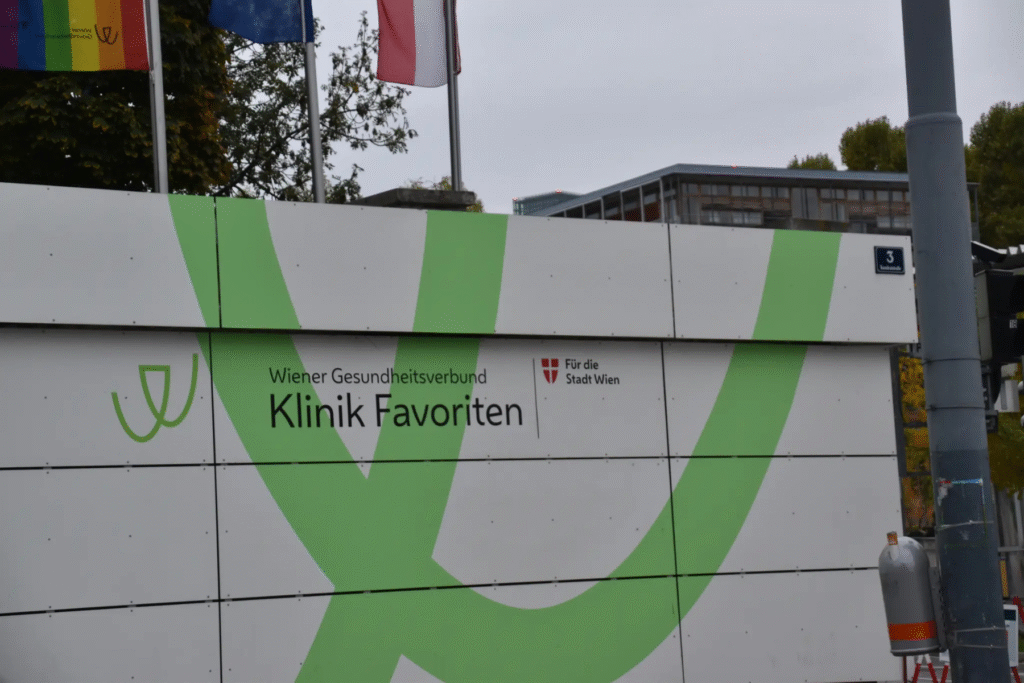
The Vienna public prosecutor’s office is investigating a nurse at the Klinik Favoriten on suspicion of murder. Spokeswoman Nina Bussek confirmed a report by the weekly newspaper Falter on Tuesday morning. “Yes, it’s true, we are conducting an investigation,” Bussek told Der Standard. Authorities had become aware of “a situation that is now being reviewed.” The suspect is currently not in pre-trial detention, Bussek said. At this stage, she could not comment further on the case — and would not confirm the Falter report that an exhumation was allegedly being prepared.
According to the Vienna Health Association (Wigev), which held a press conference in the afternoon, a second case is also under review. Ten days ago, the Vienna prosecutor’s office requested documents, said Wigev medical director Michael Binder. The patient in question was also receiving palliative care at the same hospital and died in January 2025. He had been under the care of the nurse now suspected of murder. The accused nurse is not in custody, Bussek said, noting that prosecutors currently do not assume an urgent suspicion of guilt. So far, only irregularities in the documentation of medication administration have been established. The main suspect has “denied the allegations,” Binder stated.
Internal investigation
According to Falter, the nurse is suspected of deliberately killing a cancer patient with an overdose of painkillers and sedatives. During a shift change, she reportedly remarked that the patient could be given “a bit more, then it will be over faster,” the newspaper reported in its Tuesday newsletter. The Vienna Health Association confirmed that the woman died in mid-September. “We cannot confirm an overdose,” a Wigev spokeswoman stressed. However, the suspect’s offhand comment was overheard by colleagues. The patient in question had been receiving palliative care in the final stage of cancer.
The day before the patient’s death, there were discrepancies in the recorded medication quantities, according to a Wigev statement. Dosages must always be determined in consultation with treating physicians; nursing staff are not permitted to change them independently, a Wigev spokeswoman told Der Standard.
Nurses dismissed
According to the spokeswoman, the dying patient was administered “medications in dosages that had not been prescribed.” It remains unclear whether this contributed to the woman’s death. Wigev emphasized that autopsy results are still pending: “It cannot yet be confirmed whether the administration of medication had any causal link to the deterioration of the patient’s condition or her death.”
Because of the severity of the illness, as-needed medication administration was authorized for the patient. While this allows nurses discretion, every dose must be documented — which did not occur in this case. Combined with the nurse’s remark, this prompted the investigation.
After the patient’s death, the nurses who took over the shift from the accused and another nurse discovered inconsistencies in the medication records and reported the incident. The second nurse involved in the shift is described as experienced; she is suspected of at least sharing responsibility for inaccurate documentation. She is also under investigation but is not believed to have taken part in any direct act leading to death. Both nurses have since been dismissed.
Unconfirmed allegations
According to Wigev, both deceased patients were between 50 and 70 years old and “in the final phase of life,” said Silvia Riepl, director of nursing at Klinik Favoriten, speaking to the media.
The hospital reportedly reacted within 24 hours, launching an internal investigation and notifying the public prosecutor’s office, said the Wigev spokeswoman. However, the patient had already died at that time — and it remains unclear whether the medication dosage was the cause of death, she emphasized.
The Wigev spokeswoman explained that the hospital maintains an extensive control system, including case reviews, reporting mechanisms, and internal compliance rules designed to prevent such incidents. At present, there is “no indication of a causal connection between the medication administered and the patient’s death,” Binder told APA. The hospital must now await the autopsy and toxicology results, which typically take about three months.
The Falter report also mentions an allegedly imminent exhumation of another possible victim, citing an unnamed insider. Neither the prosecutor’s office nor Wigev confirmed this information. “We are not aware of another case,” said the spokeswoman. Wigev also stated that it has no knowledge of the “abusive nurse” mentioned in the Falter article. All allegations will be examined, but the two cases are not believed to be connected.

